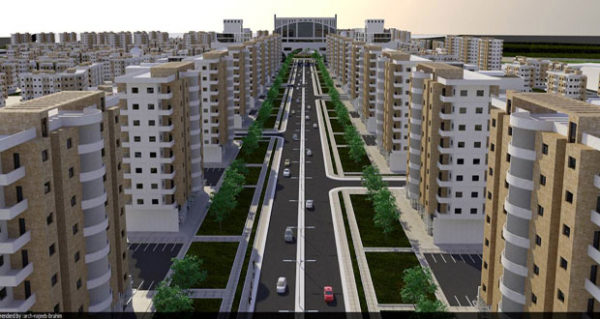The ninth year of internal armed conflict poses new challenges for Syria. According to the United Nations Economic and Social Commission for Western Asia, released on September 23, 2020, the total damage to the Syrian economy at the end of 2019 is approaching US$ 500 billion.
Fighting has left Syria in ruins, entire towns and cities have been almost completely wiped out, and the country’s infrastructure needs to be rehabilitated. Remaining under sanctions in the absence of an international consensus on financing the reconstruction, the country has not overcome the acute economic crisis, has also faced the negative consequences of the coronavirus pandemic, in addition to the destabilization of the situation in neighboring Lebanon.
Syrian authorities have pledged to make reconstruction their “first priority” and have endeavored to put in place the legal and regulatory framework for a reconstruction. Despite the fact that numerous legislative acts (in the banking and financial sector, investment, insurance, international trade) were already in the making before the war, said authorities are determined to update and modify them, and to establish many agencies to develop and support long-term investment contracts based on public-private consortia with foreign participation in infrastructure and other sectors.
Facing multiple challenges, Syria needs to finance this reconstruction. Since US and European countries are still conditioning their financial support with a significant change in the governance of Syria, this position leaves the door open for Russian but also to Chinese and Indian companies. Consequently, an intensification of the exchanges of delegations between Russia and Syria was observed in September-October 2020 on a government level.
Syrian private entrepreneurs and industrials have the experience of conducting their business in accordance with the rule of private commercial law within the framework of their national and international activities. Despite the traditional domination of the Syrian state in economic affairs since its independence, Syria has experienced periods of openness in the years 2000s, by the attempts to expand trade and establish strategic economic partnerships abroad.
Tellingly, the local political establishment and the community of experts are analyzing the prospects for rebuilding a “balance of influence” in Syria following J. Biden’s victory.
It is clear that Russia is in a strong position to secure contracts for the reconstruction of Syria, given its political influence in the country.
Russian companies have repeatedly expressed their interest in participating in the reconstruction of Syria on the basis of the principles of public-private partnership. Moscow prioritizes strengthening the functions of (central) government and has focused on reforming and modernizing the Syrian security sector and infrastructure (Russian investments were done for the main airport and maritime port).
However, even under current improvement of bilateral exchange, Russian companies, especially those that have never worked in Syria, may be worried about legal issues of protection investments, mainly the guarantees and conditions of return on their financial and technological investments.
Furthermore, Russian companies might be better off if they partner Chinese or European private companies.
As an international law firm, SRDB may assist foreign companies in Syria and provide the adequate advice always in line with international laws and regulations.
Amongst important legal issues, are an elaboration of efficient PPP tools, improvement of transparency in tendering procedures and clear guidelines, enhancement of the Syrian framework for international arbitration.
SRDB law firm follows these important international issues and assist the companies on all steps of foreign investments process in Syria, including but not limited to, in arbitration before Lebanese Arbitration and Mediation Center, which is currently used by the Syrian private sector.
Investing in Syria is a complex challenge. It needs to have a clear visibility on the project as well as a full legal support.
Similarly, rebuilding Syria is a complex process with multiple stages dependent on each other: political stabilization, economic recovery and national reconciliation are the interdependent main challenges for Syria.

